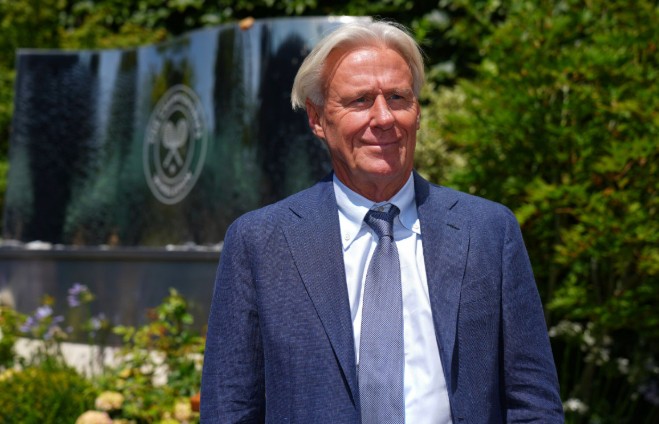Bjorn Borg Opens Up on Drug Battles, Tennis Exit, and New Memoir
Swedish tennis legend Bjorn Borg has laid bare the highs and crushing lows of his extraordinary life in a new memoir, Heartbeats.
From overdoses in foreign hospitals to the abrupt end of his tennis career at just 25, the 11-time Grand Slam champion spares little in a book that is already stirring global attention.
The memoir begins with Borg being rushed to a Dutch hospital in the 1990s after overdosing on what he describes as “alcohol, drugs, pills, my preferred ways of self-medication.”
It ends with the revelation that he was diagnosed with prostate cancer, closing the loop on a turbulent yet remarkable life story.
“It’s good,” Borg, now 69, told the Associated Press from his Stockholm home, “to have a good beginning and a good ending.”
Borg shocked the sporting world when he quit tennis at the height of his career. After losing both Wimbledon and US Open finals to arch-rival John McEnroe in 1981, he admitted he no longer felt the fire.
“All I could think was how miserable my life had become,” he writes.
Though he would briefly return, Borg never played another Grand Slam. Instead, he drifted into a life of uncertainty.
One infamous moment saw him celebrating after his US Open defeat with beer in a Long Island pool, while friends had been waiting to toast his victory.
“I was not upset or sad when I lost the final. And that’s not me as a person. I hate to lose,” he explained. “My head was spinning, and I knew I was going to step away from tennis.”
Fans knew him as “Ice-Borg,” the calm, stoic star whose stillness contrasted with McEnroe’s fire. But Borg admits that composure was learned the hard way.
As a youth, he was banned from his original tennis club for six months for swearing, cheating, and outbursts. The discipline forced him to bottle his rage.
“Boiling inside? Yes,” Borg admitted. “I had to control my feelings. … You cannot do that in one week. It took years to figure out how I should behave on the court.”
Once tennis was gone, darker battles took hold. Borg details panic attacks and his introduction to cocaine in 1982.
“The first time I tried cocaine,” he writes, “I got the same kind of rush I used to get from tennis.”
But the spiral was brutal. He recounts two overdoses, one in Italy in 1989 and another in the Netherlands years later.
The second left him waking up in hospital with his father looking down at him, an image he calls “the worst shame of all.”
“Stupid decision to be involved with this kind of thing. It really destroys you,” he reflected. “I was happy to get away from tennis, to get away from that life. But I had no plan what to do. … I had no people behind me to guide me in the right direction.”
Heartbeats isn’t only about pain. It’s also a record of a life lived on the edge of fame and danger.
Borg recalls death threats during the 1981 US Open, being robbed at gunpoint after carrying bundles of cash, and bizarre encounters ranging from Andy Warhol to Nelson Mandela.
The memoir name-drops an eclectic mix: Donald Trump, Hugh Hefner, Tina Turner, even a brush with Yasser Arafat.
There are tales of coin-throwing crowds in Rome, shoulder injuries before key tournaments, and scandals involving women claiming paternity.
“People will be very surprised by what really happened,” Borg confessed. “For me to come out (after) all these years, all I went through, I went through some difficult times, (it’s) a relief for me to do this book. I feel so much better. … No secrets anymore.”
Unlike the polished autobiographies of many sporting greats, Borg’s story is raw, chaotic, and startlingly honest.
It captures the rise of a young Swedish boy who transformed tennis, the emptiness that followed sudden retirement, and the long path to peace.
For fans in the UK and beyond, the book is more than a tennis tale. It’s a human story about fame, downfall, and survival, told in Borg’s own words.






